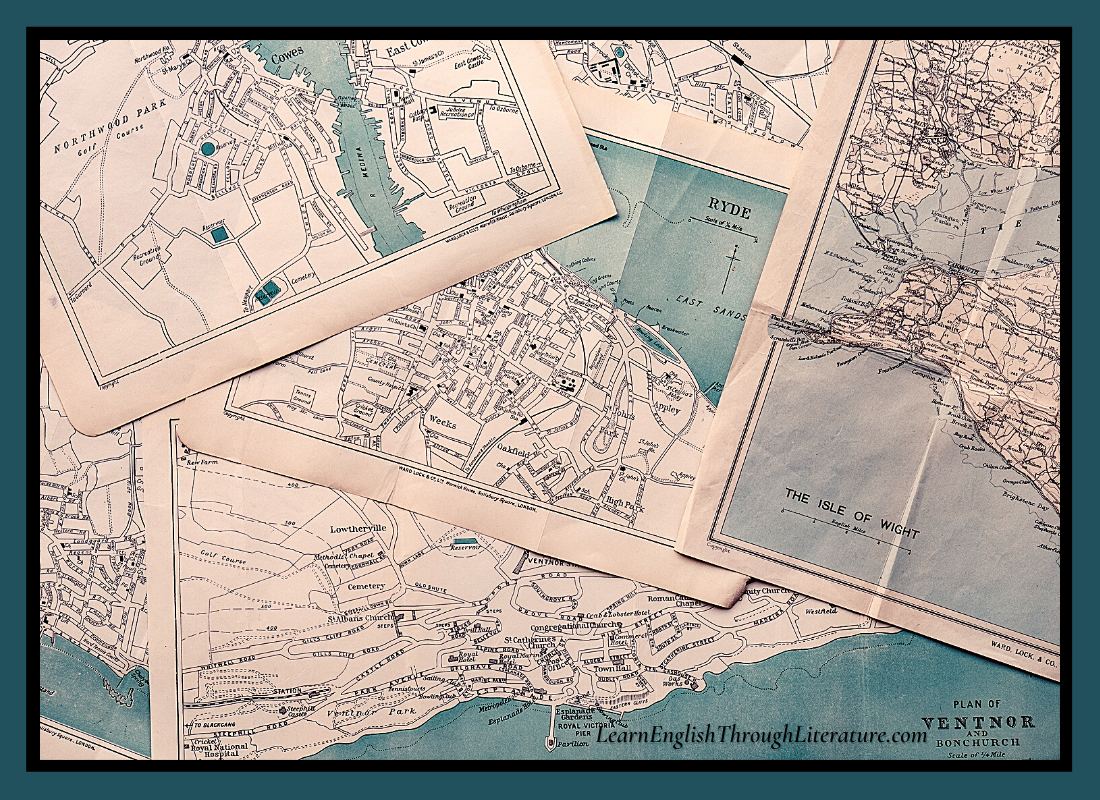If you have ever heard someone mention ‘Lilliput’ or ‘Brobdingnag’, you have heard a reference to one very early English classic, Jonathan Swift’s Gulliver’s Travels into Several Remote Nations of the World (1726). 📗
It is a fantasy story of a surgeon and captain called Lemuel Gulliver who is shipwrecked on islands of tiny people (Lilliput) and of giants (Brobdingnag) respectively.
It is so full of dramatic and satirical contrasts, which has brought to my mind a trio of words that are used to express contrast in English. ‘Although’, ‘though’, and ‘even though’ are useful and at the same time confusing for many English learners, so I hope today’s Lesson clarifies matters for anyone who has struggled with them before.
…
📝 THOUGH, ALTHOUGH, EVEN THOUGH
These are transition words that are used to show contrast between two different things.
✍️ The main difference nowadays between them is their level of formality. Generally speaking, ‘though’ is the least formal, ‘even though’ is a little more formal, and ‘although’ is the most formal of all.
Note that ‘even though’ is a more modern construction, so Jonathan Swift and many English writers until recently used ‘although’ instead of ‘even though’.
…
📝 PLACEMENT
Both ‘although’ and ‘even though’ are mostly flexible in their placement in a sentence.
✍️ They can be placed at the beginning or in the middle of a sentence (that is, between the two ideas they are contrasting).
However, you cannot use them at the end of a sentence.
📗 ‘Although I intend to leave the description of this empire to a particular treatise, yet, in the mean time, I am content to gratify the curious reader with some general ideas.’
– Jonathan Swift, Gulliver’s Travels
📗 ‘It was now day-light, and I returned to my house without waiting to congratulate with the emperor: because, although I had done a very eminent piece of service, yet I could not tell how his majesty might resent the manner by which I had performed it …’
– Jonathan Swift, Gulliver’s Travels
✍️ By contrast, you can use ‘though’ in the middle or at the end of a sentence (especially in modern English).
It also tends to sound more conversational.
📗 ‘Now the buildings of the outer court were at least five feet high, and it was impossible for me to stride over them without infinite damage to the pile, though the walls were strongly built of hewn stone, and four inches thick.’
– Jonathan Swift, Gulliver’s Travels
📗 ‘This was my bed all the time I staid with those people, though made more convenient by degrees, as I began to learn their language and make my wants known.’
– Jonathan Swift, Gulliver’s Travels
An example of a sentence which ends with ‘though’ could be as follows:
✒️ Gulliver was a brave sailor who had already travelled far and wide by the time he arrived in Lilliput. This time he as alone though.
Or another example:
✒️ The people of Lilliput were just like him – in their manner of speaking, dressing, and eating. They were smaller, much smaller though.
This is especially common when the second (contrasting) idea or thing is not directly identified, but is still obvious from the context.
👉 For example, consider my first sample phrase above (‘Gulliver was a brave sailor …’). When I finished it with ‘this time he was alone though‘, I was hinting that ‘before this time’ Gulliver had travelled with other people. Because of ‘though’ here, a contrast is implied (hinted at) so readers can guess that until this time, Gulliver had not travelled alone before.
…
In summary, ‘although’ and ‘though’ are almost synonymous with ‘but’, ‘yet’, ‘still’ but are more flexible in their placement (remember, you would never finish a sentence with ‘but’ or ‘yet’). At the same time, ‘though’ and ‘although’ are more informal than ‘nevertheless’ or ‘nonetheless’, and so we tend to use them more readily in writing as well as in speaking.




